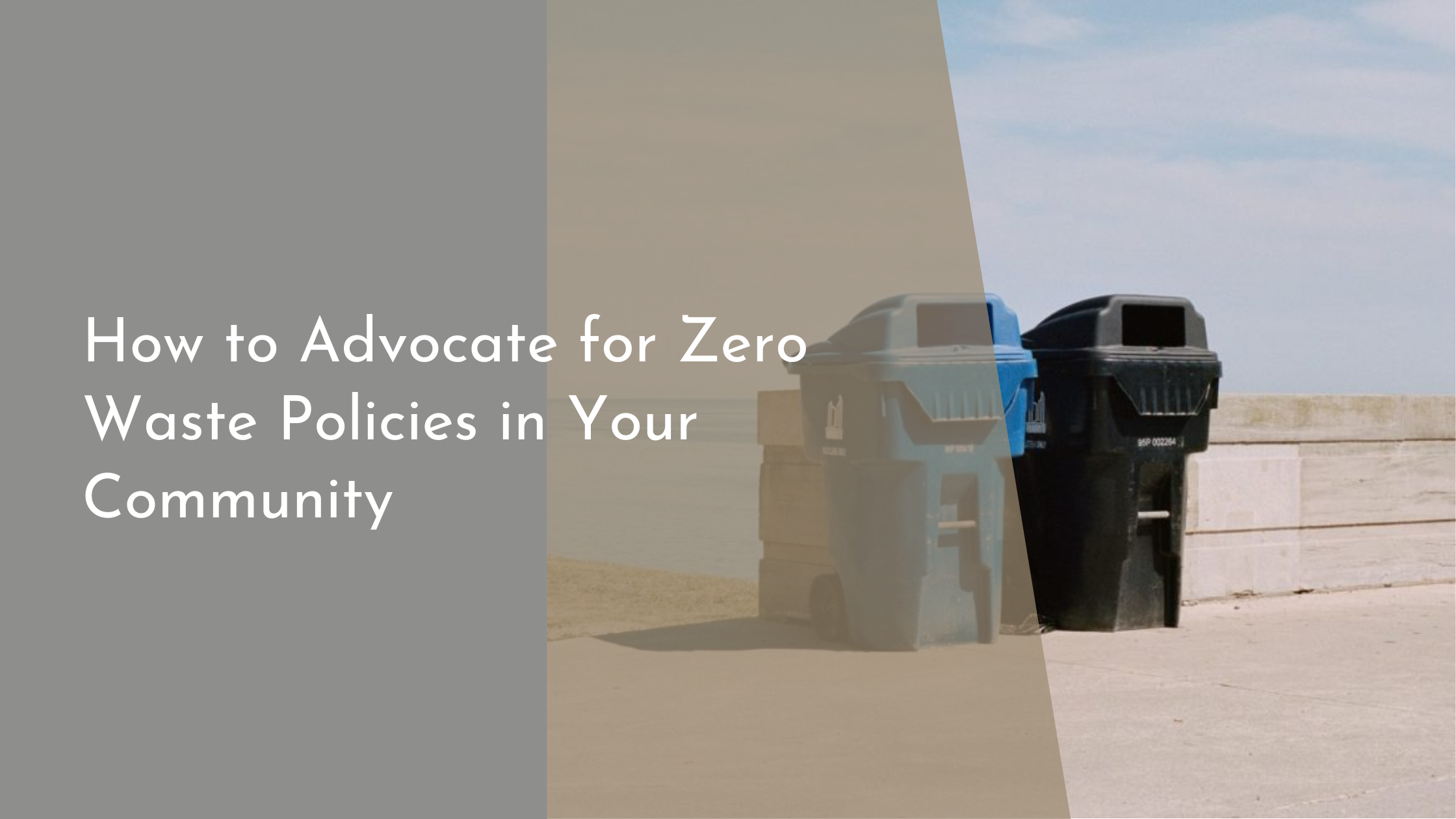How to Advocate for Zero Waste Policies in Your Community
Zero waste is more than just a buzzword; it’s a transformative lifestyle and policy direction aimed at minimizing waste and maximizing sustainability. As environmental challenges continue to mount, advocating for zero waste policies in your community can lead to significant ecological, economic, and social benefits. This article will guide you through the process of understanding zero waste principles, building a coalition for change, engaging with local leaders, and spreading awareness effectively.
Understanding Zero Waste Principles and Benefits
At its core, zero waste is about redesigning our systems to ensure that all products are reused, repaired, or recycled back into nature or the marketplace. This approach encourages a circular economy where resources are continually repurposed, reducing the need for landfill space and minimizing pollution. By adopting zero waste principles, communities can significantly decrease their carbon footprint, conserve energy, and preserve finite natural resources.
The benefits of zero waste extend beyond environmental health; they include economic and social gains as well. Implementing zero waste initiatives can lead to job creation in the recycling and remanufacturing industries and reduce costs for waste management. Socially, it fosters a culture of responsibility and innovation, driving community members to collaborate on sustainable solutions. When everyone actively participates in waste reduction, the quality of life improves for all residents, making the community a healthier and more prosperous place to live.
Building a Community Coalition for Change
Creating meaningful change requires collective action, and building a community coalition is a powerful first step. Begin by reaching out to local environmental groups, schools, businesses, and residents who are passionate about sustainability. Hosting initial meetings to discuss shared goals and strategies can help lay the groundwork for a unified effort. A diverse coalition ensures that various perspectives and skills are harnessed to address the multifaceted challenges of implementing zero waste policies.
Once your coalition is established, assign roles and responsibilities to ensure everyone is actively involved. Create subcommittees to focus on different aspects, such as education, policy advocacy, and community engagement. Regularly scheduled meetings and open communication channels will keep the coalition cohesive and motivated. Together, your group can develop a comprehensive action plan that outlines specific goals, timelines, and metrics for measuring success, ensuring that your advocacy is both organized and effective.
Engaging Local Leaders and Policymakers
To successfully advocate for zero waste policies, it’s crucial to engage with local leaders and policymakers. Start by identifying key decision-makers in your community, such as city council members, mayors, and relevant department heads. Schedule meetings to present your coalition’s goals and the benefits of zero waste policies. Be prepared with data and case studies from other communities that have successfully implemented similar initiatives.
Building strong relationships with policymakers involves continuous dialogue and demonstrating the community’s support for zero waste policies. Invite them to attend coalition meetings, community events, and educational workshops to witness the momentum firsthand. Encourage them to become champions of the cause by aligning zero waste initiatives with existing policy priorities, such as economic development or public health. By framing zero waste as a win-win solution, you can persuade decision-makers to prioritize it in their agenda.
Spreading Awareness Through Events and Education
Raising awareness about zero waste is a vital part of changing community behavior and gaining broader support for your initiatives. Organize community events, such as workshops, clean-up drives, and recycling fairs, to engage residents and educate them about the importance of reducing waste. Partner with local schools to incorporate zero waste education into their curriculum, instilling these values in younger generations.
Use a variety of platforms to disseminate information and keep the community informed and engaged. Social media campaigns, newsletters, and local media coverage can amplify your message and reach a wider audience. Develop educational materials, such as brochures and infographics, that provide practical tips for individuals to reduce their waste. By making the information accessible and actionable, you empower community members to take part in the zero waste movement and contribute to the collective impact.
Advocating for zero waste policies in your community is a journey that requires dedication, collaboration, and creativity. By understanding the principles of zero waste, building a supportive coalition, engaging with local leaders, and spreading awareness, you can help your community transition towards a sustainable future. Remember, every small step taken by individuals and groups brings us closer to a resilient and thriving environment for generations to come. So, let’s roll up our sleeves and start making a difference today!

